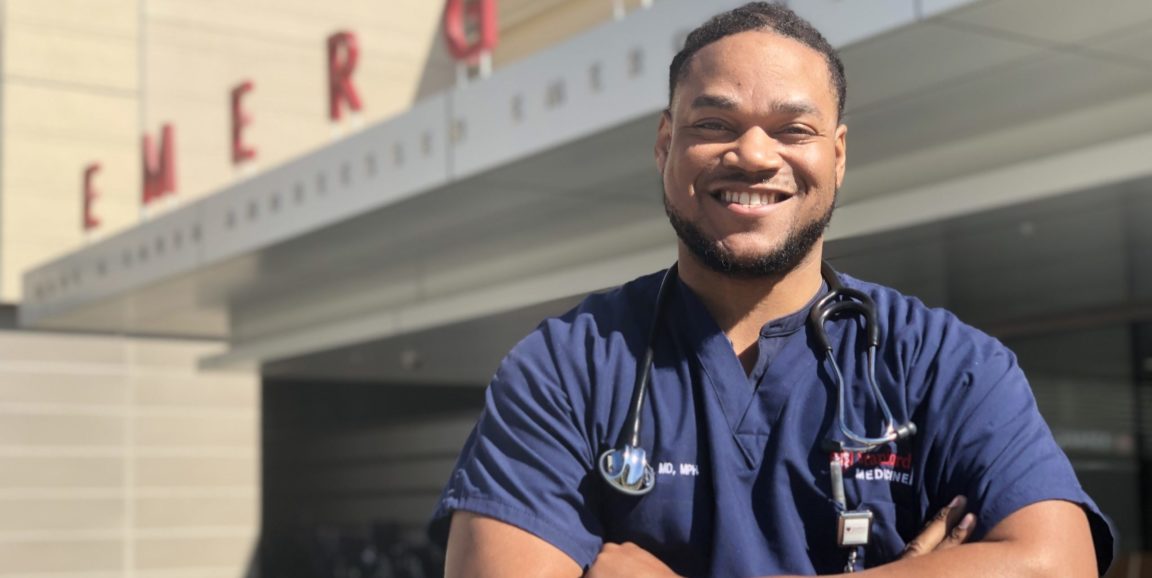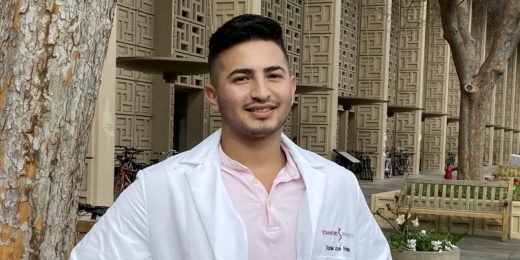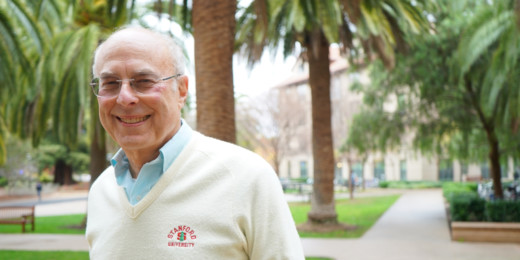Ever wondered if movies like Scarface, Titanic and Us depict injuries accurately? (Or how badly they get them wrong?)
In an installment for GQ's web series "The Breakdown," Italo Brown, MD, MPH, provides running commentary about on-screen bodily harm portrayed in these and other iconic films. In one week, his charismatic video went viral -- it's amassed more than 3 million views, and counting.
Brown, whose first name means "full of valor," hails from Sacramento, and is the social emergency fellow with the Stanford Department of Emergency Medicine. He recently talked with me about his viral video moment and his more serious quest to improve health in forgotten communities.
A GQ video shoot is far afield from the emergency department. How did that happen?
They reached me through LinkedIn and had me do a standard audition. I think they picked me because I tried to make things less complicated. That's important because once you can make medicine conversational, you can bridge the distance between doctors and patients. I'm always commenting on movies anyway, so it just felt normal. I even brought my friends to the shoot and just talked to them while they filmed me.
Many of the comments in response to your video remarked on your appearance as an African-American doctor with dreadlocks. Did that surprise you?
At first, I didn't read the comments. I was sure there'd be someone racially profiling, saying, "He's not a doctor," chopping the legs off 17 years of hard work. But then a friend said you need to read these. And the reception was overwhelmingly positive.
GQ basically put someone who looked like Marshawn Lynch next to Keanu Reeves; then people clicked on it and found something unexpected - a Black male physician. Black men represent only 2% of emergency medicine physicians, but we exist. Doctors of color exist. And having a natural hairstyle doesn't affect my ability to provide care; it actually helps me connect better.
Why medicine?
I grew up playing basketball but realized there was an infinitesimally small chance I'd make it to the NBA -- I was going to max out at 5'10." My mom mentioned there were NBA team doctors so I figured that could be my way in.
I struggled in college. I once called home while studying for the MCAT, and my dad (a retired firefighter) gave me some tough love over the phone. He said, "Son, I ran into burning buildings for 30 years. All you have to do is sit inside one and read." So, I hung in there, and the rest is history.
Your fellowship is in social emergency medicine, which is a relatively new arena. How did you land on that focus?
In college, I shadowed orthopedic surgeons and saw the treatment wealthy athletes received. They could afford to pay out-of-pocket for some services insurance wouldn't cover. Custodians with the exact same injuries had fewer treatment options due to insurance constraints. So, I began focusing on health disparities, which led me to a career in public health for several years before medical school.
Social emergency medicine marries public health with common medical trends in the emergency department; you take a deeper look at the underlying causes of illness. Because the emergency department has to accept all patients, a lot of underinsured patients use it as a safety net or even as their only source of health care.
You end up seeing conditions in advanced stages that could have been less serious if treated earlier. And you see the results of societal factors like poverty, alcoholism, or community and interpersonal violence. The idea is to collect data and conduct research that identifies the disparities and opportunities for interventions and support.
When I first phoned, you were in Alabama for the week, visiting barbershops. Why?
Barbershops are cultural safe spaces. So instead of waiting for poor health outcomes to emerge, I enter these spaces to engage patrons in conversations about health issues. These are spaces Black men go to once or twice a month for an hour or two at a time. They are comfortable there. So, in these conversations, they open up and ask questions they wouldn't ask their doctors. Black men still avoid doctors because of mistrust, as a legacy of the Tuskegee experiments. But if I build that trust, I can help improve their health literacy. I can change their reluctance to see a physician.
Photo by Susan Coppa






